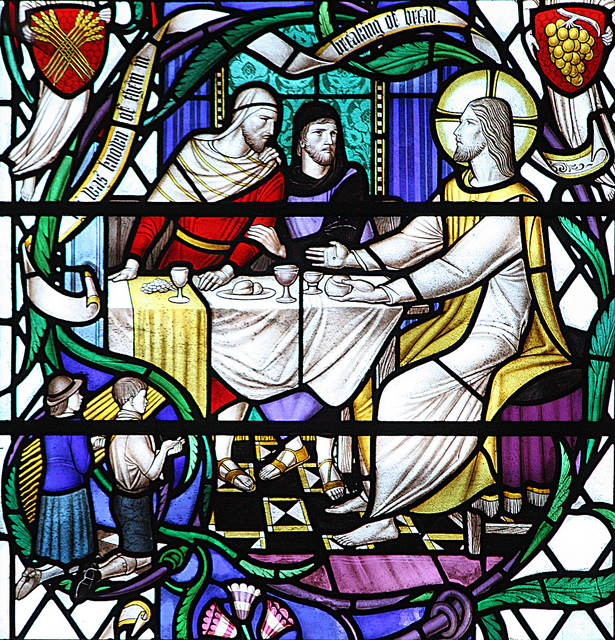The two disciples on the road to Emmaus were having a very difficult day. They were part of “the group,” the followers of Jesus, and they were coming from Jerusalem after the crucifixion. It was terrible. Now, three days later, there were rumors that his body was gone. Some of the women from their group and some of the apostles had gone out to look, and it was true. What does this all mean?
They were so filled with their own pain, disappointment and confusion that they didn’t recognize Jesus as he caught up with them on the road. He asked them what was wrong. “They stopped, looking downcast.” In their disillusionment and despair, they did not even look at him closely. They just wanted to tell him the story of their pain. “We were hoping…” they said.
We were hoping.
So many times in our lives, we get caught up in our own sorrows and we don’t recognize Jesus standing there with us. “We were hoping” … that our lives would not be so messy. Instead, our loved ones are ill; our marriages are not what we had hoped for; or perhaps our children disappoint us. We, or someone we love, struggle with an addiction.
They tell him their stories and something in Jesus draws them to him: his warmth, his understanding.
He tells them about the suffering servant of Israel. He says suffering is part of the story. He touches their hearts as they begin to see the scriptures in a new way, though they don’t fully make the connection.
When it comes time to separate on the road, they urge him to say with them. “It is nearly evening and the day is almost over.” It might have been common to ask a traveler to stay as night drew on because the roads were dangerous. But there is something more. They feel so drawn to him and want to stay in his presence. Things are more hopeful as he speaks. They feel his deep care for each of them. It is somehow a very personal connection with this stranger they do not recognize.
So he stays with them. As they gather around the table for dinner, there is warmth and prayer and then Jesus takes the customary bread, blesses it and breaks it. It hits them both at once. Jesus! Suddenly, everything makes sense and Jesus is here!
Then he vanishes. Astonished the two friends stare across the table at each other. “Were not our hearts burning within us while he spoke to us on the way?” They had felt it, but they had not recognized him. Now, the scriptures and this breaking of bread come together in their hearts.
Our lives are busy, complicated and messy. We often ignore Jesus’ presence in our lives, even though he is always with us, loving each one of us in deeply personal way. How did we miss seeing him? How did we not recognize him? When we get caught up in our own pain, guilt and anger, we miss seeing him walking next to us. We know deep in our hearts how flawed and sinful we are. We might feel that we are simply unworthy of the kind of endless love Jesus offers.
Yet, that love is there for us, in the midst of the suffering servant-hood of our lives.
When we focus on ourselves and our own sin, we miss what is standing in the road next to us: Jesus telling us that he loves us in all of our sin. He wants to be a deeper presence in our lives. When we pause and let that love sink into us, we can feel our hearts burn within us.
The two disciples, recognizing that burning in their hearts, “set out at once” despite the dangers of night travel. This time they probably did not walk with downcast eyes, but ran, laughing and hugging each other on the road as they realized what had happened. They were now spreading the good news.
Pope Francis has said that the two became “witnesses of the hope that is Christ because they met him. This Jesus,” the Pope said, “is the Risen Traveler that journeys with us, and Jesus is here today. He is here among us. He is here in his word, is here on the altar, journeying with us.”
Jesus vanished from the table in Emmaus but he remained with the disciples in their burning hearts. They are more prepared to be broken and given for others. And, he remains present with us, whether we recognize him or not. If we open our hearts and feel them burn, we become disciples, running in joy to spread the good news of his love and mercy.